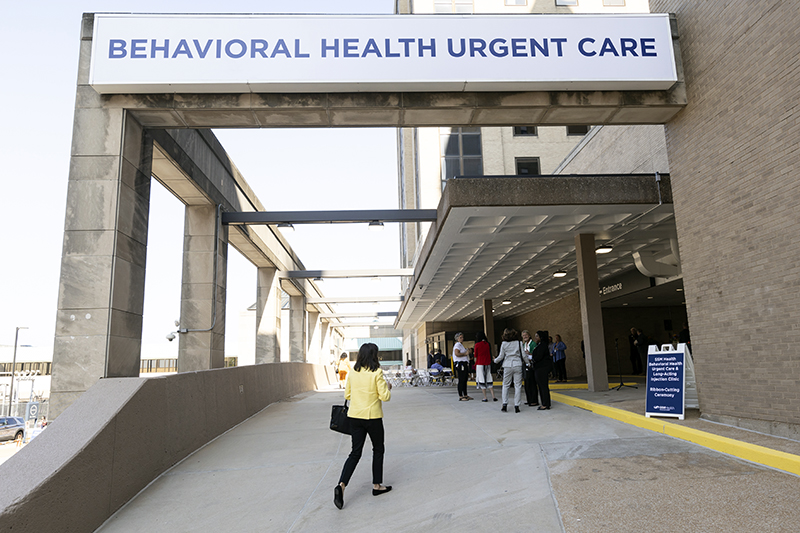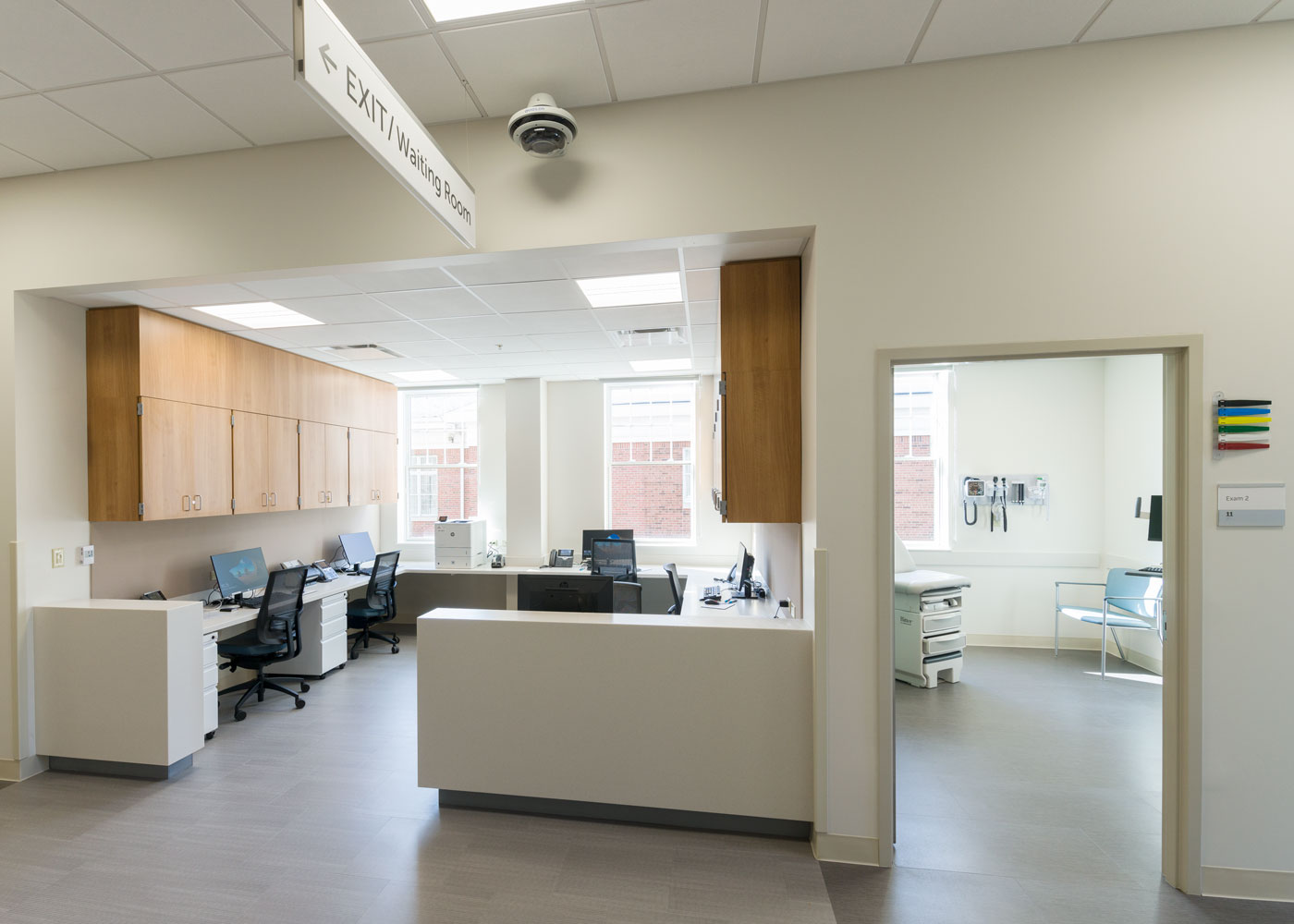Leading Tips for Selecting the Right Clinic for Your Urgent Care Requirements
Leading Tips for Selecting the Right Clinic for Your Urgent Care Requirements
Blog Article
Understanding the Role of Urgent Treatment in Giving Timely Therapy for Non-Life-Threatening Problems
Immediate treatment facilities have become an important element of the health care landscape, dealing with the instant needs of clients with non-life-threatening conditions. By offering prompt and easily accessible clinical services, these centers successfully connect the space between health care and emergency situation departments. However, the implications of their duty expand beyond mere convenience, motivating a better evaluation of when and how these centers are utilized. Comprehending the nuances of immediate care can substantially impact patient results and the overall performance of health care delivery. What aspects contribute to their expanding importance in modern medicine?
What Is Urgent Treatment?
Immediate care describes a group of medical solutions made to deal with non-life-threatening problems that require instant focus. These centers serve as an intermediary in between key care doctors and emergency clinic, providing a hassle-free alternative for clients who require punctual care without the comprehensive waiting times commonly related to emergency departments.
Immediate treatment facilities are typically staffed by doctor, consisting of medical professionals, registered nurse practitioners, and doctor assistants, who are educated to identify and deal with a vast array of conditions. Common services offered by these centers include treatment for minor injuries, health problems, and infections, in addition to analysis examinations such as X-rays and laboratory work.
The availability of urgent care is a key consider its allure, as several centers operate beyond normal workplace hours, including evenings and weekend breaks. This extended availability permits clients to obtain prompt care when their medical care copyright may not be easily accessible. In addition, immediate care facilities commonly approve walk-in individuals, removing the requirement for appointments. Overall, immediate care plays an essential function in the healthcare system, making certain clients can access essential medical solutions immediately and successfully.

When to look for care at an immediate care facility instead of a key care physician or an emergency situation room,Several individuals may discover themselves unpredictable regarding. Urgent care is designed to address non-life-threatening problems that need prompt interest but are not severe enough to warrant an emergency space go to.
Generally, one must think about immediate care for problems such as small fractures, strains, cuts requiring stitches, or infections like urinary system infections. Additionally, chilly or influenza symptoms, breakouts, and allergies can likewise be suitably managed in this setup.
It is essential to note that immediate treatment is not suitable for lethal emergency situations, such as chest pain, trouble breathing, or severe bleeding, which require prompt emergency clinic intervention.
People that do not have access to a medical care doctor or can not safeguard a prompt appointment may also benefit from immediate treatment solutions. Inevitably, recognizing when to utilize urgent care can result in a lot more efficient health care shipment, enabling individuals to obtain the ideal degree of treatment based upon their details wellness demands.
Advantages of Urgent Treatment Centers
Picking immediate treatment facilities for non-life-threatening problems uses a number of advantages that improve client experience and availability. One main benefit is the decreased wait times compared see here to traditional emergency clinic. Immediate treatment centers usually operate on a first-come, first-served basis, enabling individuals to get prompt medical attention without the long hold-ups often connected with hospital setups.
In addition, immediate care centers give prolonged hours, including evenings and weekend breaks, suiting people with varying schedules. This adaptability makes certain that individuals can seek treatment when it is most practical for them, further advertising timely intervention.

In addition, these centers commonly provide an extensive range of solutions, consisting of minor treatments and analysis tests, all under one roof. This consolidation of solutions not only streamlines the person experience however likewise fosters an extra cohesive approach to taking care of non-life-threatening health and wellness issues, inevitably benefiting overall individual outcomes.
Usual Conditions Dealt With
At urgent treatment centers, a range of non-life-threatening problems can be successfully dealt with, offering people with easily accessible and prompt medical help. These centers are especially experienced at dealing with problems that call for prompt attention but do not position a prompt risk to life or limb.
Typical conditions treated at urgent care centers include minor injuries such as strains, cracks, and pressures. Urgent care centers are equipped to perform essential analysis examinations, such as X-rays and lab tests, enabling them to provide comprehensive treatment.
In addition, immediate care companies can administer vaccinations, aiding to avoid the spread of contagious illness - Urgent Care. They also supply solutions for minor treatments, such as suturing injuries or draining abscesses. By offering these varied services, immediate treatment centers play a vital duty in connecting the gap in between health care and emergency situation services, guaranteeing patients receive prompt therapy for a large array of conditions without the need for long delay times normally associated with emergency spaces
Just How Urgent Care Sustains Medical Care System
Immediate treatment facilities play a crucial duty in sustaining the total medical care system by easing the worry on emergency divisions and offering prompt access to clinical care for non-life-threatening problems. By handling situations such as minor injuries, infections, and health problems, urgent care centers allow emergency divisions to focus on more essential clients calling for immediate interest.
In addition, urgent care facilities enhance healthcare access, offering prolonged hours and an extra hassle-free alternative to standard medical care settings. This ease of access is specifically beneficial for clients that might not have a normal physician or who need instant therapy beyond regular workplace hours. Consequently, urgent care centers efficiently minimize wait times and boost patient fulfillment.
Furthermore, immediate treatment centers add to YOURURL.com set you back financial savings for both individuals and the medical care system by giving lower-cost solutions contrasted to emergency situation divisions. This monetary effectiveness is crucial in an age of increasing health care expenses, enabling clients to get required treatment without incurring outrageous costs.
Final Thought
To conclude, urgent care facilities play an essential duty in the health care system by delivering timely therapy for non-life-threatening problems. By connecting the gap in between key care and emergency situation rooms, these centers ensure that people get prompt medical attention without the lengthy delay times normally connected with emergency divisions. The access and effectiveness of urgent treatment centers contribute dramatically to easing the general burden on medical care resources, boosting individual outcomes, and advertising a much more effective medical care delivery system.
Immediate care facilities have arised as an important component of the health care landscape, addressing the prompt needs of people with non-life-threatening conditions. Immediate care brows through typically sustain lower out-of-pocket expenditures compared to emergency situation division check outs, making treatment much more budget-friendly for patients without jeopardizing top quality. Urgent care facilities are geared up to perform needed analysis tests, such as X-rays and lab examinations, enabling them to offer thorough care.
By providing these varied solutions, urgent care facilities play an essential role in connecting the void in between primary care and emergency solutions, making certain clients get look what i found prompt therapy for a vast range of conditions without the requirement for lengthy delay times typically connected with emergency spaces.
In addition, immediate care centers enhance healthcare availability, using extensive hours and an extra hassle-free choice to traditional primary care settings.
Report this page